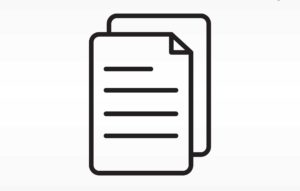Textbook alternative offers benefits to students, faculty and schools, supporters say
 A new $500,000 fund will provide grants to faculty members or departments who want to transition their courses away from high-priced textbooks.
A new $500,000 fund will provide grants to faculty members or departments who want to transition their courses away from high-priced textbooks.
The Textbook Liberation Fund is intended to help save college students $1 billion. It was launched by Skyepack LLC, an organization focused on the design and production of digital course materials as an alternative to the traditional textbooks ecosystem.
To apply for a grant through the Textbook Liberation Fund, faculty or department chairs must complete a proposal and submit it according to the rules and conditions explained on the fund’s website by 11:59 p.m. Eastern Standard Time on Feb. 28, 2016.
Once submitted, proposals will be peer reviewed, taking into consideration the feasibility and student impact of the project. Along with the grant, selected recipients will be able to work one-on-one with the Skyepack instructional design team.
“We believe students deserve cost-effective and simple alternatives to the textbook ecosystem most of us are familiar with,” said Skyepack Chief Executive Officer Brady Kalb. “Getting your books or course required reading shouldn’t necessitate a student loan.”
Skyepack works directly with universities and their faculty to provide cost saving solutions for institutions and their students. Through its platform, services and design team, Skyepack offers students and instructors an interactive, 21st century classroom experience available as a lower cost alternative to traditional textbooks as well as their digital companions.
Skyepack uses Open Educational Resources (OER), content the instructor has already created or plans to create, custom content created by the company and content licensed from third parties to develop custom alternative materials for specific courses as well as entire departments.
In addition, Skyepack protects the intellectual property of educators by publishing their content and course materials without claiming ownership of their work.
“We are excited about the opportunity for faculty members, departments and schools to create sustainable projects for the cost reduction of course materials,” added Kalb. “We firmly believe the accessibility of course materials directly impacts student engagement and knowledge retention. It’s time to evolve from the traditional textbook ecosystem and offer more alternatives to students at a lower cost.”
Material from a press release was used in this report.
- Report forecasts a ‘surge’ in GenAI adoption - April 26, 2024
- Where are microcredentials today–and where are they going? - April 22, 2024
- First-generation students are more likely to seriously consider leaving college - April 17, 2024
